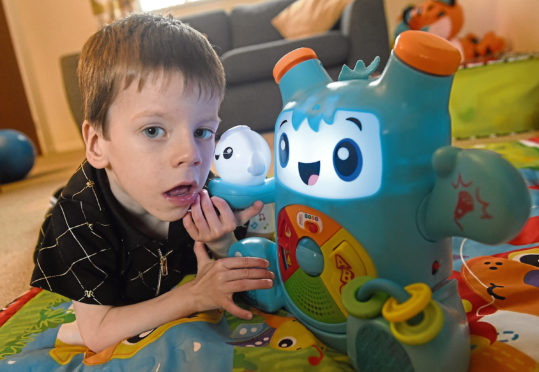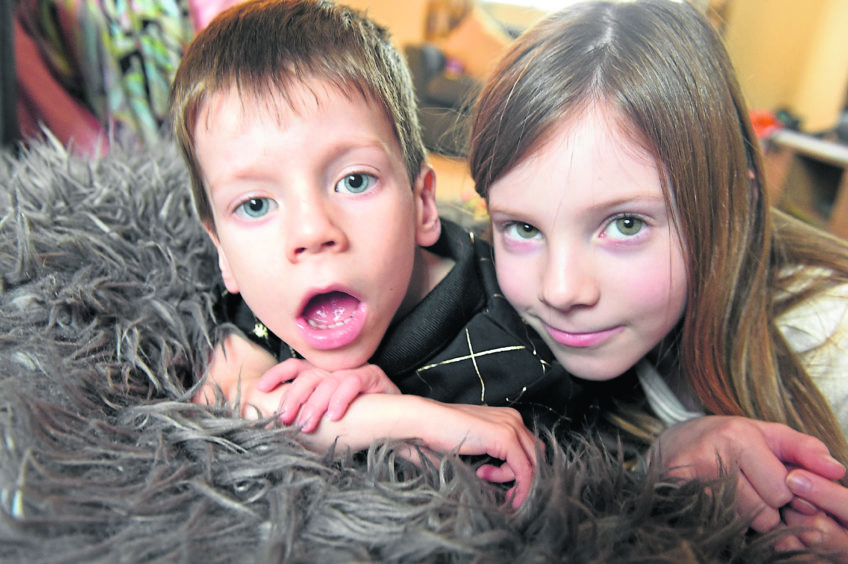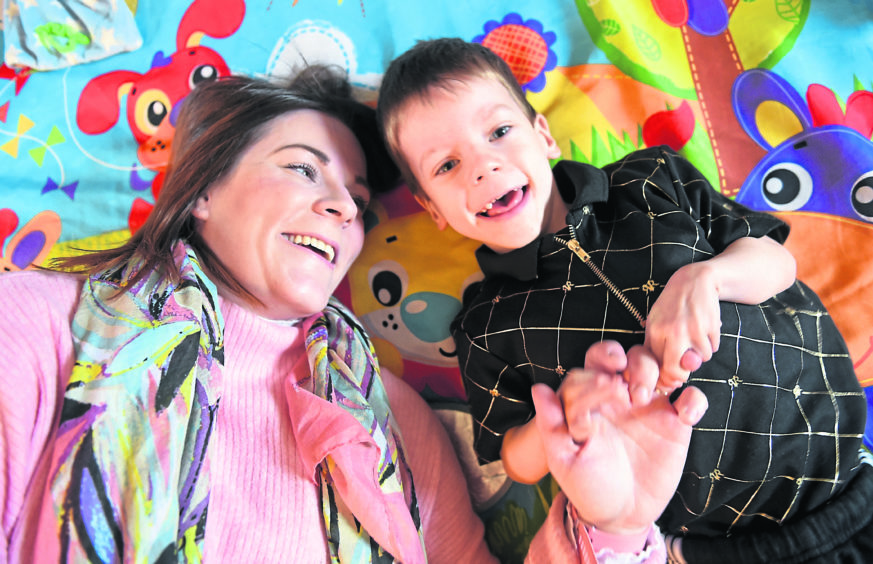When Jemma Nisbet welcomed her son into the world, she was greeted by the usual fanfare of well-wishers.
Already mum to Ellie, who is now eight, she returned home with baby Aaron and husband Lee, who is an Army lance-corporal.
Their son grew into a contented baby, happy to sleep or watch the world go by.
But as time passed, Jemma could not shake off the feeling that something wasn’t right.
She had already faced a difficult pregnancy due to severe hyperemesis gravidarum, which causes excessive nausea and vomiting – often resulting in hospital treatment.
“I couldn’t even keep water down,” said Jemma.
“An old wives’ tale says that sickness is a sign of a healthy baby.
“I don’t really listen to stories like that anymore.”
With each passing milestone, Jemma’s anxieties increased.
“Aaron wasn’t even trying to sit up, whereas Ellie was walking when she was nine months old,” she said.
“Everybody kept telling me that it was because boys were lazy.
“Aaron was born without thumbnails, no-one could tell me why.
“I felt like this crazy mum looking for answers.
“I did all the research and there were only two/three conditions where no thumbnails was a symptom.”
When Aaron was one-and-a-half, he finally received a life-changing diagnosis – which saw the family move from Fife to Inverness.
Here, his mother explains the reality of raising a child with an incredibly rare syndrome, and why she is determined to increase awareness.
Jemma’s story
The consultant phoned me and said Aaron had Temple-Baraitser Syndrome.
He was only the 16th case worldwide.
Before the diagnosis, I found it really hard to bond with Aaron.
I knew something was wrong, I actually blamed myself.
This is just something that happened, and I found that really hard to get my head around.
I kept thinking of all the different factors when I was pregnant.
Out of all the billions of people in the world, how could this ‘just happen’ to us?
Then I started speaking to people online, parents whose children also had the syndrome. It felt like this secret little gang – there are only five cases in the UK.
We moved to Inverness because Lee is based here; it was too hard doing all the travelling.
Aaron is four now, he can’t sit or walk by himself.
He can’t go to the toilet and he can’t eat lumpy or textured food.
He’s like a baby in that he’s so delayed.
I think the medical term would be to say that Aaron is mentally handicapped, he can’t talk.
As his mum, that is a really hard thing to swallow.
I have a nephew who is four months older than Aaron.
I can’t help but compare and that is really difficult.
Aaron kicks his legs when he’s happy, though.
His face tells you everything, he is so animated.
Once you have a special needs child, you enter into this little world.
Some people are lovely and ask questions, other people just stare at us.
The older generation can be a bit more direct, they’ll come up to us and say ‘What’s wrong with him?’
We take Aaron everywhere with us, but it highlights the lack of accessibility.
Quite often I’ll have to change him on a toilet floor, because he is obviously too big for a changing table.
It’s not ideal.
Ellie is amazing with him, we get the best out of Aaron when she is around.
She understands his condition, she tells everybody ‘His brain doesn’t work like your brain’.
It’s an emotional rollercoaster and I do get days where I think to myself ‘what did I do to deserve this?’
There was a period where Aaron didn’t sleep at all and I was very lucky to have an amazing health visitor.
I work full-time and that is my sanity.
It is finding the balance.
Every mother fights for her child, I just have to fight that bit harder.
So I have to prove that Aaron needs to go a special needs nursery, for example.
Or I am questioned for parking in a disabled space and told that I do not look disabled.
Now I tell people about him and the syndrome as much as I can.
I probably push it in their face.
I never used to put pictures of Aaron online, I kept him secret.
Then I started posting little bits; now I think the world needs to see him.
That was my acceptance.
Aaron’s future is unclear, we will always have to look after him.
He is a total daddy’s boy and Lee has been amazing. He takes it so well, he’s done so many hospital trips and operations.
We want to give Aaron the best possible start in life.
That includes seeing a conductive education therapist, which we fund ourselves.
Even with two wages, the cost racks up.
We pay for private therapy, specialist equipment and hopefully some research in the future.
We cannot even touch the surface just now, but we are so grateful for friends, family and work colleagues who have helped us with fundraisers so far.
In our eyes, Aaron is incredibly special and we are so proud of him.
For more information and to donate, visit Genesdontfit on Facebook.


